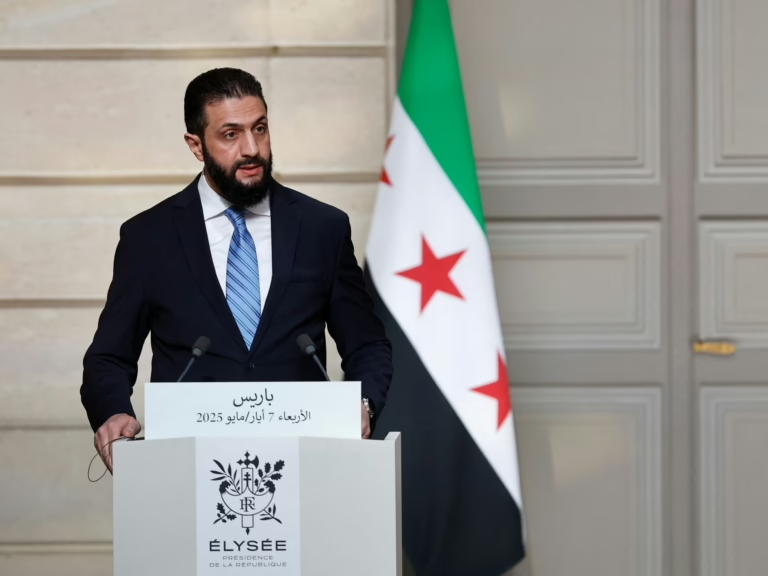President Ahmed al-Sharaa engages with the US Secretary of State in New York ahead of his participation in the United Nations General Assembly sessions.
Published On 22 Sep 2025
During his visit to New York, Syrian President Ahmed al-Sharaa has once again urged the United States to officially remove the sanctions imposed on Syria. This marks the first time in nearly 60 years that a Syrian head of state has attended the United Nations General Assembly.
Al-Sharaa, who previously led opposition forces that toppled Bashar al-Assad’s regime in December, is now advocating for a new chapter in Syria’s international relations.
Earlier this year, US President Donald Trump met with al-Sharaa in Riyadh, Saudi Arabia, and announced the lifting of most sanctions. However, the Caesar Syria Civil Protection Act of 2019, which authorizes these sanctions, remains in effect under US law.
Congress is currently deliberating the potential repeal of the Caesar Act. Some members from both Republican and Democratic parties are pushing to include this repeal as an amendment in the National Defense Authorization Act, a comprehensive defense bill anticipated to pass by December’s end.
Addressing the Concordia Annual Summit on the sidelines of the General Assembly, al-Sharaa emphasized that the sanctions, originally targeted at the former Syrian government, have become unjustified and are increasingly perceived by Syrians as punitive measures against the population itself.
“Our priority is to revitalize the economy,” al-Sharaa stated. “Syria’s workforce is diverse and industrious by nature. Remove the sanctions, and the positive impact will be evident.”
In New York, al-Sharaa held discussions with US Secretary of State Marco Rubio, aiming to broaden Syria’s diplomatic ties with Western nations and reduce its global isolation.
The US Department of State highlighted that Rubio “recognized the opportunity for Syria to establish a stable and sovereign state following President Trump’s landmark announcement earlier this year regarding sanctions relief for the Syrian people.”
The talks also covered ongoing counterterrorism initiatives, efforts to find missing Americans, and the critical role of Israel-Syria relations in fostering regional stability.
Despite the formal state of war between Israel and Syria, with Israel maintaining control over the Golan Heights, tensions persist. Since the fall of al-Assad, Israel has conducted numerous military strikes within Syrian territory.
When questioned about Syria’s potential participation in the Abraham Accords-agreements some Arab nations have signed to normalize relations with Israel-al-Sharaa responded, “Syria’s situation is unique. Unlike those countries, Syria shares a direct border with Israel and has endured over a thousand Israeli raids and incursions.”
He added, “This starkly differentiates Syria from the other signatories of the Abraham Accords.”

















